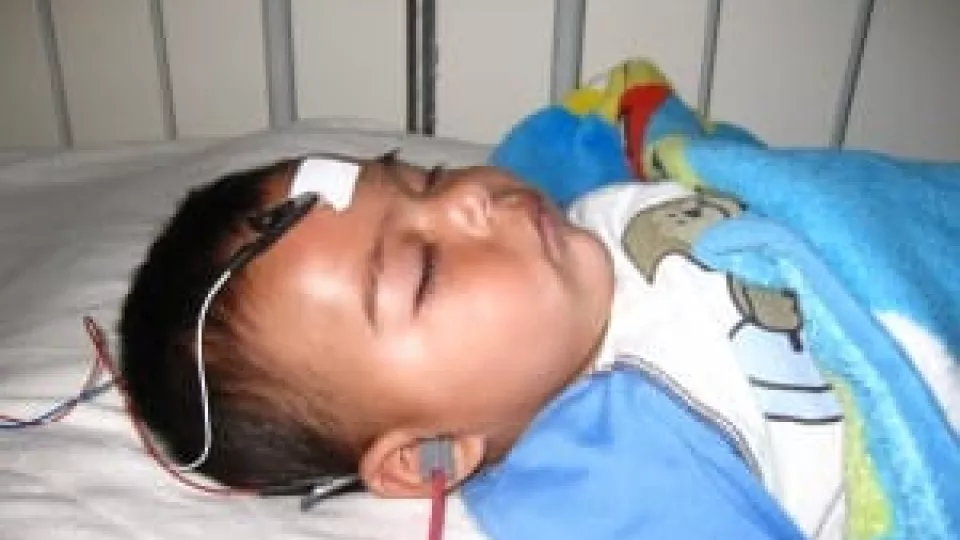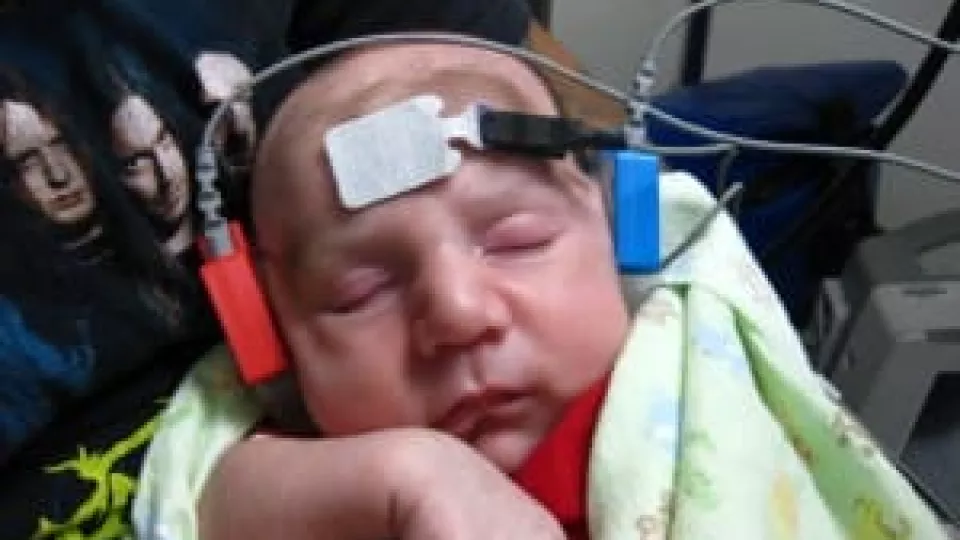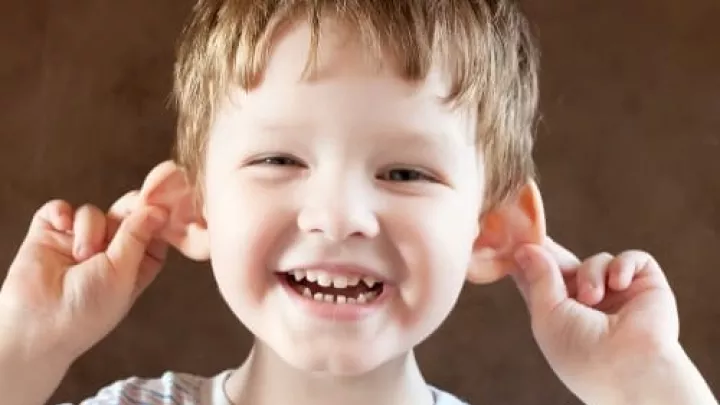
Newborn Hearing Screenings: What Every Parent Should Know
In the United States, hearing loss is estimated to affect two to four newborns out of 1,000. Newborn hearing screenings are now mandatory at birth. Through the hearing screening, a permanent or temporary hearing loss may be diagnosed by three months of age, which allows treatment to begin by six months. Research studies show that babies who have hearing loss that is identified early receive hearing aids and are treated before six months of age have far better speech, language skills and social skills. Hearing loss is invisible and as your child gets older, speech and language delays become noticeable, which is why newborn hearing screenings are important.

A newborn hearing screening is performed by a trained nurse or a hearing screener. This screening is required by the state and is performed in all hospitals that deliver babies.
Types of Hearing Screenings for Your Newborn
There are two types of hearing screenings:
- Otoacoustic Emissions (OAE). This test requires a small ear tip to be placed in your baby’s ear and clicking sounds made. If your baby’s hearing is normal, an “echo” or release is made and recorded in the ear.
- Automated Auditory Brainstem Response (AABR). This requires your baby to be asleep. Ear couplers are placed on both ears and electrodes are placed on the forehead and behind the ears. A clicking sound is made and your baby’s brain waves are measured.
Hearing screenings are painless, quick and automatically show a “pass” or “refer” result. If your newborn baby receives a “refer” result on their first test, it means a second hearing screening will be completed before being discharged.
What Does a “Pass” Mean on a Newborn Hearing Screening?

If your newborn baby receives a “pass,” it’s likely your baby has normal to near-normal hearing. Yet, since these newborn screening tests cannot definitely rule out a mild or minimal hearing loss, it’s important to pay attention (especially during the first and second years of life) to your baby’s responses to soft and loud sounds in the environment like a dog barking, music, or your own voice. Pay attention to your baby’s attempts to imitate these sounds. If your baby is not responding to sounds at home, contact your baby’s doctor.
What Does a “Refer” Mean on a Newborn Hearing Screening?
If your baby receives a “refer” on their second screening you will be referred to an audiologist for an evaluation. An audiologist will evaluate, diagnose, treat and manage hearing loss and balance problems in children and adults. It is very IMPORTANT that you follow-up with your newborn’s audiologist for a complete evaluation. Your baby may have a temporary or permanent hearing loss in one or both ears.
What May Cause a “Refer” on a Newborn Hearing Screening?
Not all “refer” results mean hearing loss for your baby. Below are some of the reasons that a “refer” result can occur during a newborn hearing screening.
- There could be a sticky substance inside the ear canal called vernix. Vernix may take a few days to a few weeks to work itself out of your newborn’s ears.
- There could be middle ear fluid in your newborn’s ear, which may also take a few days to a few weeks to work itself down the throat.
- Your baby may have been moving or crying during the hearing screening, which is why it is important that your baby sleep during the screening.
Highlighted by latest research, when your baby is past the newborn stage, consider incorporating hearing screening into your routine well-baby care.


